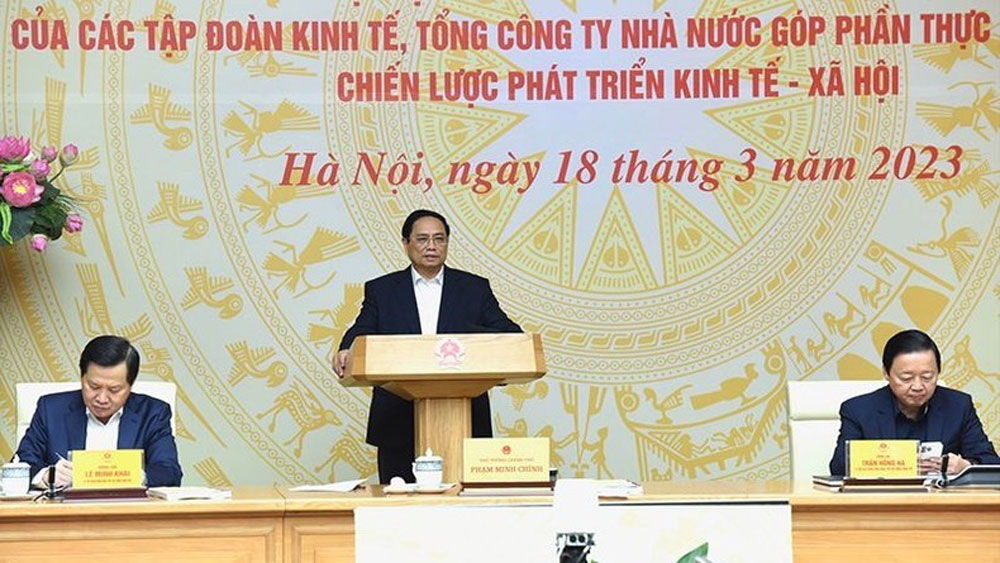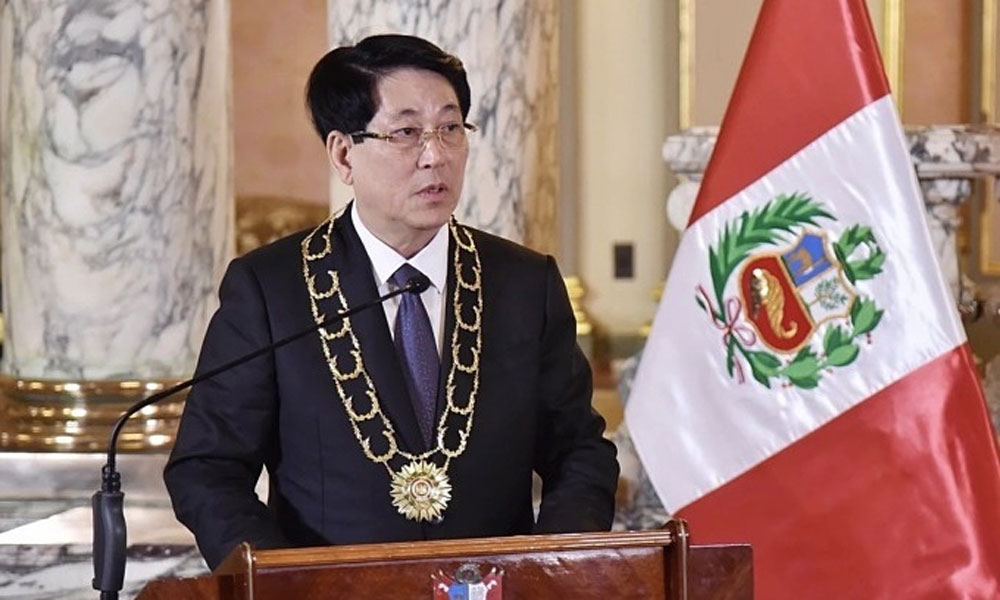PM asks state-run groups, corporations to contribute to building self-reliant economy
Chairing a conference on solutions to innovate the operation of the Committee for Management of State Capital at Enterprises (CMSC) and effectively promote investment resources of State groups and corporations, the Government leader said the CMSC and the 19 groups and corporations it manages must make effective contributions to ensuring macroeconomic stability and major balances, controlling inflation, and promoting growth.
 |
|
Prime Minister Pham Minh Chinh speaking at the conference. |
Attention should be paid to three growth drivers of domestic consumption, investment and export, he said, adding groups and corporations should uphold the responsibility and role of their heads in promoting investment and expanding investment in innovation and creativity, with focus on emerging industries, and major and key projects; and continue to restructure enterprises and transform management models to adapt to new conditions and the situation of the country.
The PM pointed out that the activities of the committee and the 19 croups and corporations still have many limitations and difficulties, and they have failed to bring into play the 63% of capital resources and the 65% of assets of State-owned enterprises nationwide which they are holding.
He asked ministries, sectors and localities to promptly remove bottlenecks in investment of enterprises, speed up the formulation of strategies and master plans for the development of sectors and fields, and associate the development strategies of State-owned enterprises with the development of these sectors and fields in order to make the most of the important resources of the country.
It is necessary to supervise the exercise of rights, functions and duties of the CMSC to avoid causing corruption, other negative phenomenon, and loss of capital and property of the State, the Government leader emphasised.
As of 2022, the 19 groups and corporations managed by the CMSC had guaranteed about 87% of electricity, 50% of petrol for retail sale, 100% of dry gas, 70% of liquefied petroleum gas, 70% of fertilisers, 45% of mobile subscriptions, 49% of domestic air passenger transport, 16% of sea freight management, and 100% of railway transportation.
Source: VNA
 Bắc giang
Bắc giang















Reader's comments (0)